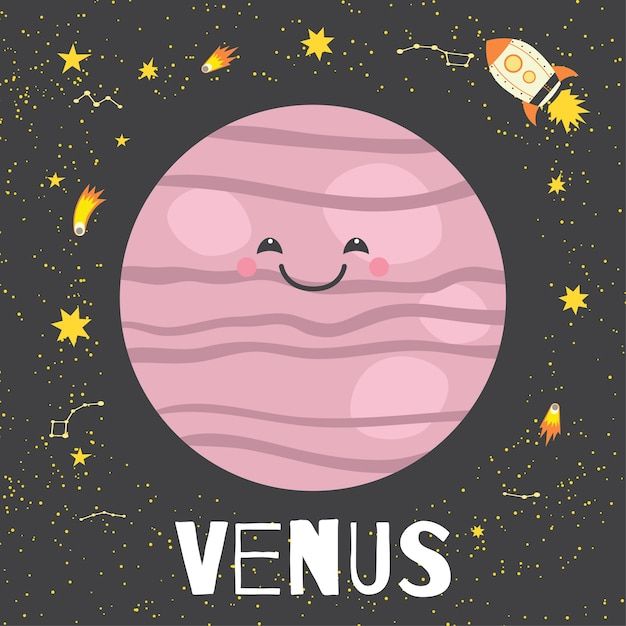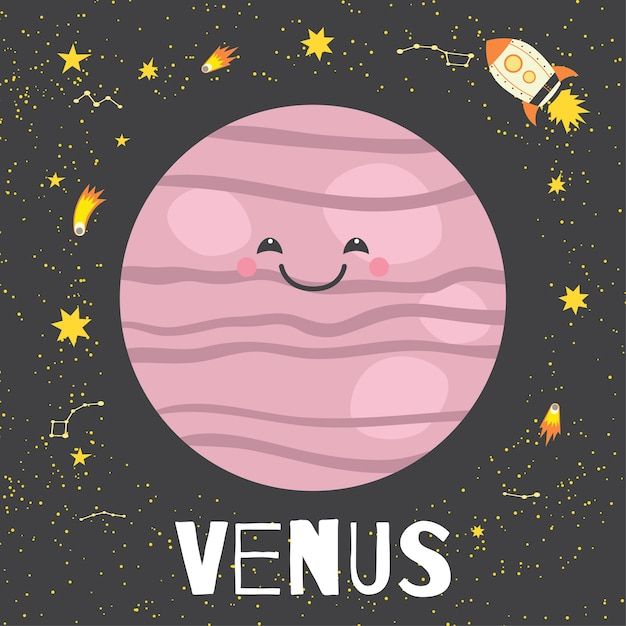
Venus - 1

Venus, second planet from the Sun, has roughly the same size, mass, density, and composition as Earth. Until the 1960s, scientists and science fiction writers speculated that Venus might be very Earth-like, and home to lush, tropical forests. That view changed when new observations confirmed a superheated surface with temperatures over 400C and atmospheric pressures nearly a hundred times that of Earth. But the biggest difference from Earth lies within Venus’s atmosphere. The clouds on Venus, which hide its surface, are made not of water like they are on Earth, but rather of concentrated sulfuric acid—essentially battery acid. About 700 million years ago, just before life was diversifying on Earth, Venus experienced tremendous volcanic activity, flooding the surface with new lava and filling the atmosphere with greenhouse gases, causing a runaway greenhouse effect. Volcanoes continue to erupt on Venus.


